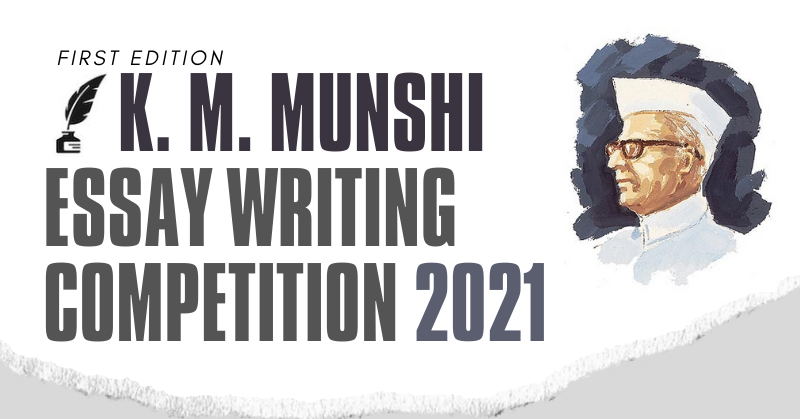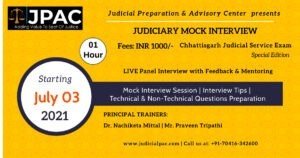Introduction
The Kanaiyalal Maneklal Munshi Essay Competition is the first in the series of six Essay Competitions, which will be organized every year with an intent to celebrate the history and cultural heritage of Bharat. We feel honored to name this essay competition after Kanaiyalal Maneklal Munshi, whose contributions made in service of the civilizational state require no introduction. He was an active figure in the independence movement, who was dedicated to the cause of securing freedom be it through non-violence or by violent means. As a member of the Constituent Assembly, he actively took part in several committees working on drafting the Constitution and his impact can be seen in the Fundamental Rights section of our Constitution. Beyond the political sphere, he worked extensively on the cultural front before and after founding the Bharatiya Vidya Bhavan. This was through the institutional support of the Bharatiya Vidya Bhavan that India’s pre-eminent Historian R. C. Majumdar completed the 11 volume Magnum Opus on Indian History titled “The History and Culture of the Indian People”. Through his own writings in Gujarati, Hindi, and English, KM Munshi was able to direct popular attention towards issues of cultural and religious importance. After the demise of M K Gandhi and Vallabhbhai Patel, it was KM Munshi who took charge of the Somnath Mandir restoration project and ensured that the opposition from Prime Minister Nehru and Education Minister Maulana Azad could not scuttle the project after much work had already been done.
This essay competition intends to cover the Pre-Independence and Post-Independence periods of Indian History and is dedicated to the memory of all the Bengali Hindus who had to face one-sided violence right from 1905 till today and whose sufferings have been documented by Stories of Bengali Hindus, Hindu Genocide, and Hindupost. The basic outline of the upcoming five essay competitions can be found below:
| Theme | In the Name of | Tentative schedule |
| On History writing in India | Sita Ram Goel | October 2021 |
| On Hinduism | Jagadguru Adi Shankaracharya | December 2021 |
| On Medieval India | Rajmata Tarabai Mohite Bhonsle | February 2022 |
| On Ancient India | Skandagupta | April 2022 |
| On Economic Policies | B. R. Shenoy | June 2022 |
Eligibility
Any person within the age group of 14 to 35 years.
The topic for the Essay Competition
M K Gandhi and his impact on the Hindu Psyche: In Pre-colonial and Post-colonial India.
Registration Process
There is no registration fee for this essay competition. All interested participants can register for the competition through the following link: https://forms.gle/sFBQG9RjJdctM26A6. Please note that the last deadline to register is 13th September 2021.
Prize for Best Performers
- All participants finishing in top ten will be eligible to get one copy of the following books
| India That is Bharat: Coloniality, Civilisation, Constitution by J Sai Deepak |
| Eminent Historians: Their Technology, Their Line, Their Fraud by Arun Shourie |
| The Goa Inquisition: The Terrible Tribunal for the East by Anant Kakba Priolkar |
| Battles of the Maratha Empire by Aneesh Gokhale |
- The submissions of top ten finishing candidates will also be published on Bharat Bhagya Vidhata’s Blog- https://bharatbhagyavidhatablog.in/
- All participants will be issued a certificate of participation and those finishing in top ten will receive a separate certificate of merit. The certificates will be emailed to all the candidates within 15 days after the announcement of results via email.
How to submit
Entries may be submitted via email to avn99@nujs.edu. The deadline for submission of entries for this essay competition is 2359 hours, 30 September 2021.
Formatting Related Instructions
- Submissions may be only in the form of essays and should be in English. Each submission must include an abstract and be written with proper chapterisation. The abstract must not be of more than 200 words. All submissions must only be in a .doc or .docx file.
- Word Limit: 2,000 to 3,500 words (Exclusive of footnotes and abstract).
- All the citations must be done as per the NUJS Law Review Citation standard – http://nujslawreview.org/citation-standard/. Speaking footnotes are strictly prohibited. The body of the manuscript should be in Times New Roman, size 12 with 1.5 spacing. The footnotes should be in Times New Roman, size 10 with single spacing. Please note that no essay will be accepted without proper citations and references. In case you are unsure about how citation works, you can check out the following video – https://www.youtube.com/watch?v=U3ntLOPqCpg.
- Only original essays will be considered for the competition. No part of it should have been published earlier nor should it be under consideration for publication or a contest elsewhere. Any form of plagiarism will result in disqualification of the essay.
In case of any queries, please feel free to reach out via the following contact details
- Twitter handle – https://twitter.com/AvnishKSingh2
- Email ID- avn99@nujs.edu
- Whatsapp number- +917903629219
Relevant links
- Stories of Bengal Hindus: https://www.storiesofbengalihindus.com/
- Hindu Genocide, the Untold Holocaust of Hindus: https://hindugenocide.com/
- Hindupost: https://www.hindupost.in/
- Brief Profile of K M Munshi: https://www.constitutionofindia.net/constituent_assembly_members/k_m__munshi
- Story behind the Publication of Bharatiya Vidya Bhawan’s 11 Volume series titled “The History and Culture of the Indian People”: https://www.dharmadispatch.in/culture/making-of-a-national-treasure-how-the-history-and-culture-of-the-indian-people-was-written
- Somnath Mandir restoration project: https://theprint.in/opinion/on-km-munshis-birth-anniversary-remembering-his-fight-to-rebuild-somnath-temple/25283/





